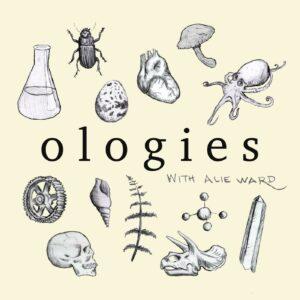Intro
In this episode of Radiolab titled “Family People,” the hosts delve into the fascinating world of names and their connection to identity. They follow the personal journey of Alex Niesen as she uncovers the meaning behind her own name and explores the complexities of her family history. Through genealogical research and visits to cemeteries, the episode explores the challenges faced by African-Americans in tracing their roots and the profound impact of discovering ancestral connections. The hosts also explore the power of storytelling and its role in shaping cultural mythology.
Main Takeaways
The Power of Names and Identity
- The hosts of Radiolab discuss their fascination with names
- Names can have a deep connection to identity and sense of self
- Military families often place a high value on their last name as it becomes a part of their identity
Alex Niesen’s Personal Journey
- Alex Niesen goes on a journey to discover the meaning behind her name
- Alex Niesen’s connection to her name was challenged when she discovered new information about her grandfather’s name and family history
- Alex Niesen’s grandfather was named Wilson Howard, not Niesen
- Alex’s family didn’t know where the name Niesen came from
- Alex wanted to know the history of her name and hired a genealogist
Challenges of African-American Genealogy
- Genealogy can be difficult for African-Americans due to incomplete and missing records
- Start by figuring out all the people who were around back then and getting more information
- Look for documents such as census, birth, marriage, and death certificates to capture father’s names
- Checking in every week and gathering documents together can be a long process
Discovering Ancestral Connections
- Conducting research may reveal unexpected family members and information
- The speaker’s possible great-grandfather, Clarence Nieson, was convicted and served jail time for robbery in Louisiana in 1942
- Through research, the speaker found out that Clarence Nieson had married Octavia Jackson in New Orleans in 1938
- The speaker and her team went to Louisiana to visit the cemetery where Wilson Howard was buried
- Visiting the place where her ancestors lived their lives was important for the speaker to truly understand their story
Uncovering Family Secrets
- The speaker’s dad’s cousin, Rhea, who knew Edna, could provide more information
- Rhea’s definition of family and relationships is more expansive than the speaker’s
- Edna Jackson, the speaker’s great grandmother, was found at a cemetery
- The speaker found their grandfather’s birth certificate, which revealed that he was the illegitimate child of Clarence Niesin and Edna Jackson
- The speaker is curious about the origins of the Niesin name and who the first black person to receive it was
The Journey of Levi Niesin
- The speaker traced their family tree back to Levi Niesin, their great-great-great grandfather
- Levi Niesin’s last name was spelled differently in various documents, including Lee-Sum and Nisan with an M
- The spelling of names on documents may not accurately reflect how the person pronounced their name
- Military records can be a valuable source of information for African American genealogy
- Levi was a private in the 92nd United States Color troops infantry during the Civil War
Reclaiming Identity and Family History
- Discovering the last link in the Nieson chain was like finding a missing piece of the speaker’s family history
- The name Niesin anchored the speaker to a real place and gave them a sense of belonging
- Visiting the plantation where their ancestors were enslaved made the speaker feel uneasy and aware of the horror associated with the name
- The experience raised questions about expectations of feeling whole when visiting forced workspaces
- The name Nesem has anchored the family for generations
The Power of Storytelling
- The episode explores the connections and differences between the song “El Paso” by Marty Robbins and the poem “Felina” by Paul Horgan
- The creators of Radiolab delve into the history of the American West and the role of cowboys and outlaws in shaping its culture and identity
- The story highlights the power of storytelling and how different perspectives can shape the same narrative in unique ways
Summary
Uncovering Family History Through Names
The hosts of Radiolab explore the significance of names and their connection to identity. Alex Niesen embarks on a personal journey to discover the meaning behind her own name and uncovers surprising information about her grandfather’s name and family history. African-American genealogy poses unique challenges due to incomplete records, but through diligent research, unexpected family connections and information can be revealed. The speaker’s exploration leads to visits to cemeteries, where the places where her ancestors lived their lives come to life. Family secrets are uncovered, and the speaker’s sense of identity and belonging deepens as they trace their family tree back to their great-great-great grandfather, Levi Niesin. The episode also explores the power of storytelling and its role in shaping cultural mythology, particularly in the context of the American West and the cowboy narrative.
Conclusion
Through the exploration of names, family history, and the power of storytelling, this episode of Radiolab highlights the profound connection between identity and ancestral roots. The journey of discovering and understanding one’s family history can be challenging but ultimately rewarding, providing a sense of belonging and connection to the past. It emphasizes the importance of preserving and honoring names as a way to anchor family histories and keep stories alive.
